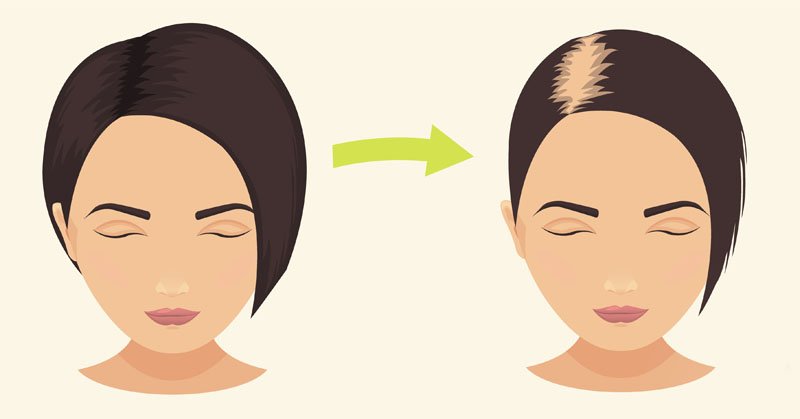
Hair loss is a common concern for many individuals, and while it can have various causes, one often overlooked factor is vitamin deficiency. Several vitamins play a crucial role in maintaining healthy hair, and their absence can lead to hair thinning and loss. This article explores the link between hair loss and specific vitamin deficiencies.
Understanding Hair Growth
Before delving into the role of vitamins in hair health, it’s essential to understand the hair growth cycle. Hair growth consists of three stages: anagen (growth), catagen (transition), and telogen (resting). Each strand follows this cycle independently, and hair loss occurs when new hair doesn’t replace the shed hair. Various factors, including genetics, hormones, and nutrition, influence this cycle.
The Key Vitamins for Healthy Hair
1. Vitamin A: It aids in the production of sebum, a natural hair conditioner, and its deficiency can lead to dry scalp and hair breakage.
2. Biotin (Vitamin B7): This vitamin is crucial for maintaining hair strength and texture. A deficiency can result in brittle and thinning hair.
3. Vitamin C: An antioxidant that aids in collagen production, essential for hair structure and strength.
4. Vitamin D: Promotes hair follicle function and is linked to hair growth cycles.
5. Vitamin E: Supports blood circulation, ensuring the hair follicles receive adequate nutrients.
Vitamin Deficiency and Hair Loss
When the body lacks these essential vitamins, it can lead to hair loss. For example:
1. Vitamin A deficiency can cause dry, lifeless hair and potentially lead to alopecia (spot baldness).
2. Insufficient Biotin intake may result in hair thinning and slow hair growth.
3. Inadequate Vitamin C can weaken hair shafts and lead to increased hair breakage.
4. Vitamin D deficiency has been associated with hair loss conditions like alopecia areata.
5. Vitamin E insufficiency can lead to poor blood circulation, depriving hair follicles of necessary nutrients.
Prevention and Treatment
To combat hair loss caused by vitamin deficiency, it’s essential to adopt a balanced and nutritious diet. Include vitamin-rich foods like leafy greens, citrus fruits, nuts, seeds, eggs, and fish in your meals. In some cases, supplements may be necessary, but it’s crucial to consult a healthcare professional before starting any supplementation.
In conclusion, maintaining healthy hair goes beyond external treatments and hair care products. Vitamin deficiency can significantly impact hair growth and lead to hair loss. By ensuring an adequate intake of essential vitamins, individuals can promote hair health and reduce the risk of hair loss due to nutrient deficiencies. Remember to prioritize a well-rounded diet to keep your locks vibrant and luscious.
